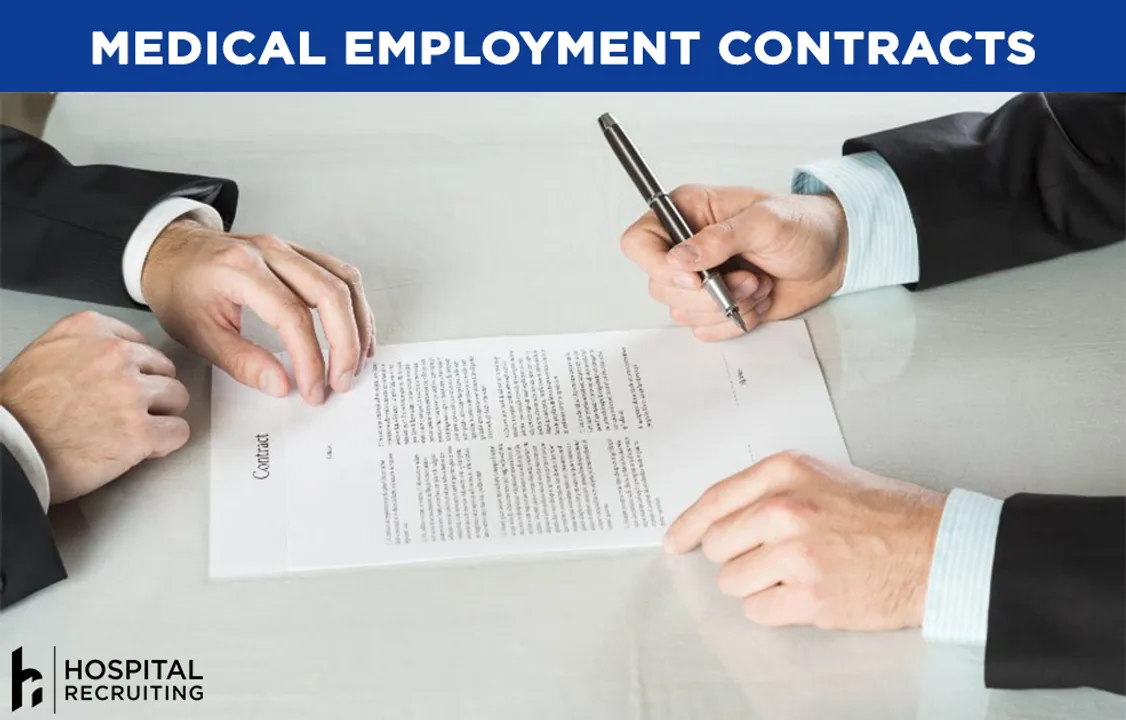Negotiating the Medical Employment Contract – What You Need to Know

It’s an exciting and stressful time for you: reviewing and negotiating a medical practice contract. There are a lot of considerations and issues you may not be familiar with, so read further to learn more about how to evaluate your proposed contract and ensure that it is to your maximum benefit.
First, put things in perspective. There is currently a physician shortage in the United States, and this puts you at an advantage. You have interviewed and met your prospective employers, and they are impressed enough with you to offer you a contract. Congratulations!
You should read the entire contract carefully. Resist the urge to skim through it as your eyes glaze over the legal mumbo jumbo. The contract is primarily written to protect your employer. The contract review period is the time to have all your concerns addressed and to negotiate the best employment package that you can.
Decide what issues are most important to you. Are you primarily concerned with the amount of your income, career advancement, or work-life balance? Decide what is a deal breaker for you. You will not receive a perfect contract that has exactly everything on your wish list, but the goal is to come as close as possible.
Understand how your income is determined. Will you receive a base salary, or is your income based on incentives? If your income is based on RVU’s (relative value units), you should know the RVU value for each new patient, follow up patient, consult, and procedure that you will be doing. Will you receive a productivity bonus, and if so, how is this calculated? How often is it distributed?
Inspect the contract in detail for important issues including frequency of call coverage, benefits package, and work schedule. If you will be entitled to health insurance, does that also cover your family, or is there an extra charge? What are the patient care days and hours? How many office locations will you be expected to cover? Are your medical licensure fees, malpractice insurance, vacation time, continuing medical education credits, and travel time reimbursed? If so, to what amount? These topics should be spelled out as clearly as possible to prevent misunderstandings down the road. Make sure these issues are put into writing. Is this a partnership track position? If so, what is the expected timeframe to reach partnership?
Be sure to review the noncompete clause (also called restrictive covenant). This limits you in practicing in a geographic area near your current employer for a certain length of time if your contract is broken. How restrictive it is, and for what time frame? If the noncompete clause is very restrictive, this can limit your future income and scope of practice. Some people may say that it is not enforceable, but do not assume so.
You should not sign a medical contract without legal representation. This is especially true if this is your first job. You will be well-served to pay an attorney who specializes in medical employment contracts to review the contract with your best interests in mind. Consider this cost as an investment in your future. Much like an engaged couple who thinks that a prenuptial is not needed and is unromantic, then ends up in a messy divorce, knowing ahead of time that you are legally protected from unintended hidden legal clauses will give you peace of mind. Remember that you are legally bound to the contract you sign and cannot claim later that you didn’t understand what it said.
Ask how the contract can be terminated, and how much advanced notice is required. Who pays the tail insurance?
Are you entitled to a sign-on bonus? This can be negotiated in some cases.
Once you review the contract, approach your prospective employer with a positive attitude. You can engage in negotiations but be reasonable and flexible. Do not lie about having other employment offers.
According to Chris Tracy, director of recruitment for Royal Oak Health Group, you will usually have between two weeks and 30 days to accept or decline the contract. If you decide to decline the contract, notify the employer promptly and politely. If there is still interest in the position, there may be room for further negotiations. If the employer feels you would be a good fit for the company, many issues can be worked out.
Best of luck in this stressful but exciting time of contract negotiations. Carefully consider the pros and cons of the prospective employment and be true to yourself!
Related Posts
